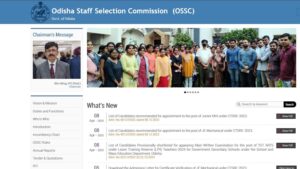Table of Contents
The University Grants Commission National Eligibility Test (UGC NET) and the Junior Research Fellowship (JRF) are crucial milestones for those aspiring to build a career in academia or research in India. This exam holds immense popularity among candidates aiming to teach in colleges or pursue research in their chosen field. Here’s a comprehensive guide on why attempting UGC NET/JRF can be a transformative step in your professional journey.
UGC NET/JRF Exam
The UGC NET/JRF exam is essential for those aiming to teach in Indian colleges and universities or pursue advanced research. Qualifying NET is mandatory for Assistant Professor roles, while JRF provides financial support for PhD studies. Eligibility includes a Master’s degree with at least 55% marks (50% for reserved categories) and age limits apply for JRF but not for Assistant Professors. Clearing this exam opens diverse academic and research career opportunities.
| Overview | |
|---|---|
| Purpose | Eligibility for Assistant Professor and Junior Research Fellowship (JRF) in Indian colleges and universities |
| Conducting Body | National Testing Agency (NTA) |
| Educational Qualification | Master’s degree with at least 55% marks (50% for SC/ST/PWD/OBC-NCL/Transgender) |
| Age Limit |
|
| Number of Attempts | No limit for both JRF and Assistant Professor |
| Exam Frequency | Twice a year |
| Exam Mode | Offline Mode/ Pen & Paper Mode |
| Exam Duration | 3 hours (single session) |
| Sections | Two papers: Paper 1 (Teaching/Research Aptitude) and Paper 2 (Subject-specific) |
| Question Type | Multiple Choice Questions (MCQs) |
| Total Questions | 150 (Paper 1: 50 questions; Paper 2: 100 questions) |
| Total Marks | 300 (Paper 1: 100 marks; Paper 2: 200 marks) |
| Passing Criteria | Varies each year based on the cut-off determined by NTA |
Why You Should Attempt UGC NET/JRF?

- Academic Career Opportunities
- Lectureship: UGC NET qualification is a mandatory requirement for the position of Assistant Professor in Indian universities and colleges.
- Junior Research Fellowship (JRF): JRF qualifiers receive financial support to pursue advanced research, often leading to PhD programs.
- Financial Support for Research
- Fellowship Grants: JRF provides a monthly stipend and contingency grant, allowing researchers to focus on their work without financial concerns.
- Research Projects: JRF qualification opens doors to various research projects funded by national bodies.
- Career Advancement
- Promotions and Pay Scale: Qualifying NET is often a prerequisite for promotions and better pay scales in educational institutions.
- Competitive Edge: The qualification enhances your resume, making you more attractive to employers in academia and research sectors.
- Enhanced Knowledge and Expertise
- In-Depth Understanding: Preparing for UGC NET/JRF deepens your subject knowledge and hones your academic skills.
- Skill Development: The preparation process improves critical thinking, research methodologies, and subject-specific expertise.
- Eligibility for PhD Programs
- PhD Admissions: JRF holders often get direct admission to PhD programs without additional entrance exams.
- Research Grants: Priority is given to JRF holders for research grants and funding.
- National Recognition
- Prestige and Recognition: Qualifying a national-level exam like UGC NET/JRF is highly respected in academic and research circles.
- Networking Opportunities: Being part of the NET/JRF community provides opportunities to connect with fellow scholars and professionals.
- Opportunities Beyond Academia
- Government Jobs: Many government departments and public sector organizations prefer NET-qualified candidates.
- Consultancy and Content Development: NET/JRF qualification opens doors to roles in educational consultancy, content development, and training sectors.
- Contribution to Society
- Knowledge Dissemination: As an Assistant Professor or researcher, you contribute to the dissemination of knowledge and advancement of your field.
- Inspiring Future Generations: Teaching and mentoring students allows you to inspire and shape future generations.
Benefits of UGC NET/JRF
- Academic Career Opportunities: Qualify for Assistant Professor positions in colleges and universities.
- Financial Support for Research: JRF provides monthly stipends and grants for PhD programs.
- Enhanced Job Prospects: NET/JRF scores are valued in Public Sector Undertakings (PSUs).
- Professional Growth: Facilitates promotions and higher pay scales in educational institutions.
- Knowledge Contribution: Enables impactful research and teaching, benefiting society.
UGC NET/JRF Job Profiles and Salary Expectations
Qualifying UGC NET/JRF opens various career opportunities:
| Job Role | Description | Salary |
|---|---|---|
| Assistant Professor | Teaching undergraduate and postgraduate students in colleges and universities. | ₹30,000 to ₹70,000 per month in private universities<br>₹55,000 to ₹105,000 per month in government universities |
| Researcher | Conducting research in a chosen field, often leading to significant contributions and advancements. | Depends on the funding and grants received for research projects |
| Public Sector Undertaking (PSU) Jobs | Various roles in public sector organizations. | Basic pay ranges from ₹60,000 to ₹180,000, depending on the organization |

 Daily Quiz 18 April 2025
Daily Quiz 18 April 2025
 OSSC CGL Syllabus 2025 and Exam Pattern ...
OSSC CGL Syllabus 2025 and Exam Pattern ...
 AI and its Regulation in India, Limitati...
AI and its Regulation in India, Limitati...





















